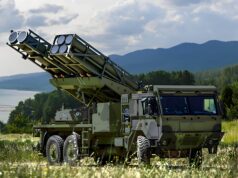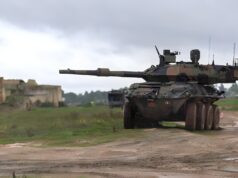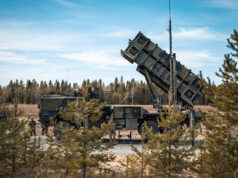“Since 2014, Ukraine has been the largest beneficiary of the SPS Programme,” said Ambassador Sorin Ducaru, NATO’s Assistant Secretary General for Emerging Security Challenges. “Many of the ongoing activities have brought about tangible results, positively benefitting local populations and helping Ukraine to cope with the results of the ongoing conflict,” stated Ambassador Ducaru in his opening remarks. Dr Strikha, Ukrainian Deputy Minister for Science and Education, underlined the strong impact the crisis has on the scientific community in Ukraine: 17 Ukrainian universities and 10 research institutions of the National Academy of Sciences of Ukraine had to be re-located as a result of the conflict.
Several SPS flagship projects are part of the Comprehensive Assistance Package for Ukraine, endorsed at the 2016 NATO Summit in Warsaw. An SPS flagship project is assisting Ukraine in the area of humanitarian demining by enhancing the capacity of the State Emergency Service of Ukraine (SESU) in undertaking demining operations in eastern parts of the country.
A multi-year initiative for the development of a 3D mine detector will ensure the sustainability of the activities. Furthermore, field exercises, organised by NATO’s Euro-Atlantic Disaster Response Coordination Centre in Ukraine and Montenegro in 2015 and 2016 respectively, demonstrated the added value of the cooperation between Ukrainian and Allied scientists and experts in disasters and incidents. “With the current crisis in Ukraine, we need to continue to strengthen practical cooperation between NATO and Ukraine.” “The SPS Programme offers a great tool to do so and it demonstrates our commitment to support Ukraine,” underlined Ambassador Ducaru.











Keep poking at the Bear……